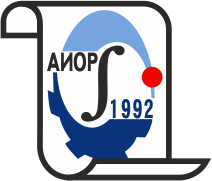Expert team consists of audit experts – specialists in evaluation of engineering educational programs – including industry representatives and employers. One of the experts is appointed by Accreditation Center as Chairman and takes duties of expert team leader, i.e. holds responsibility for preparation of expert visit, organizes and coordinates experts’ activities during the visit, arranges team’s final reports preparation.
Members of the expert team are obliged to follow the Code of Ethics and share the ideas and principles of professional accreditation of the Association for Engineering Education in Russia.
Members of expert team are obliged to follow the Code of Ethics and share the ideas and principles of professional accreditation of the Association for Engineering Education in Russia.
Requirements for expert team:
1. Experts are responsible to the HEI that undergoes the AEER accreditation process.
2. Members of expert team are required to provide qualitative and (sometimes) quantitative evaluation of:
- HEI mission;
- Educational program’s objectives and their correspondence with consumer needs and HEI mission;
- Adequacy of educational program’s objectives achievement and methods for evaluation of its efficiency;
- Complex system enabled to assure compliance with AEER criteria.
3. Expert has to:
- be competent to evaluate the educational program;
- complete training seminars or have experience as an educational program’s audit observer.
4. Chair of the expert team has to:
- Have experience as an expert of at least 2 educational program’s audits.
5. Industry representative has to:
- Have at least 5-year work experience in line with his specialty and on a managing position.
Code of Ethics
To achieve the best results of evaluation procedure and to contribute to education quality, the Code of Ethics for the AEER expert poses main rules of conduct that an examiner should follow. The expert involved in the program audit should meet high ethical standards: professionalism, honesty, impartiality and fairness.
1. Professionalism
1.1. The expert should be a professional in one of the specializations offered by the program due to accreditation.
1.2. The expert takes responsibility for high quality of the audit by means of thorough analysis of the program’s compliance with the AEER criteria.
2. Resolution of the conflict of interest
2.1. The expert should refrain from actions averting objectivity and reliability of the evaluation process. Those are as follows:
2.2. To avoid contradiction between personal interests and AEER objectives the expert involved in the audit must notify the AC if he/she has or had close contacts with this institution.
2.3. Close contacts include, but are not limited to: current or past employment, consultancy on accreditation process of the program, current or past negotiations on employment, education at this institution and any financial or personal interests.
2.4. During the audit visit the expert must keep himself/herself away from the meetings and decisions that may cause a conflict of AEER interest, he/she must inform about any real or latent conflict of interest that may influence the objectivity of the evaluation process.
2.5. The expert must not receive money or any other gifts from the HEI that may influence the audit results.
2.6. The expert must keep the audit process independent of influence of the HEI representatives in order to provide impartiality and objectivity of education quality assessment. The self-evaluation report submitted by the institution shows an official opinion of the HEI representatives; the task of experts is to carry out an independent audit of verity and completeness of information presented by the HEI.
3. Confidentiality
3.1. Confidentiality is an essential principle of the AC AEER activity. All information and documentation sent to the AEER Accreditation Center is subject to non-disclosure and should be used for evaluation and accreditation purposes only.
3.2. The evaluation team (chairman, experts and observers) takes responsibility for non-disclosure of confidential information.
3.3. The information contained in a self-evaluation report and work sheets completed during an audit visit can be used only for the purpose of AEER program evaluation and not for personal benefit.
3.4. The information shall not be distributed and disclosed without consent of AEER and the HEI.
3.5. The work sheets of the AC AEER (Work sheets F-1, F-2, F-3, F-4, F-5) are for internal use only and their content shall not be discussed with representatives of the institution. All audit documents are the intellectual property of the AC AEER. The assessment contained in work sheets shall not be disclosed to the HEI representatives.
3.6. Preparation of the audit report is to take place without participation of the HEI representatives.
3.7. Before the beginning of audit process the expert team signs the Statement of obligation of AEER expert on absence of conflict of interests and sends it to the AC AEER.
Training Seminars for Experts
| № | Date | Place | No. of participants |
| 1 | February 2-3, 2015 | Krasnoyarsk | 18 |
| 2 | November 24-26, 2014 | Tomsk | 23 |
| 3 | October 20-22, 2014 | Dushanbe (Tajikistan) | 19 |
| 4 | September 22-23, 2014 | Moscow | 18 |
| 5 | June 25, 2014 | Tomsk | 7 |
| 6 | May 26-28, 2014 | Tashkent (Uzbekistan) | 29 |
| 7 | December 19-21, 2013 | Rostov-on-Don | 32 |
| 8 | September 23-26, 2013 | Kazan | 27 |
| 9 | June 25-27, 2013 | Belgorod | 67 |
| 10 | January 28-30, 2013 | Saint Petersburg | 17 |
| 11 | May 17-19, 2012 | Rostov-on-Don | 16 |
| 12 | March 13-15, 2012 | Moscow | 16 |
| 13 | October 19, 2011 | Novosibirsk | 4 |
| 14 | March 21-23, 2011 | Moscow | 24 |
